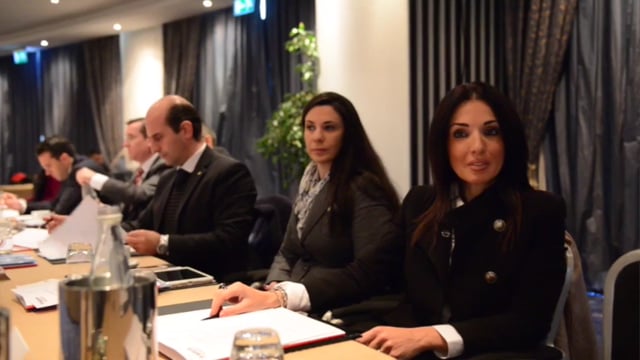[WATCH] English Language Teaching accounts for 5% of total tourism
Tourism minister Edward Zammit Lewis addresses stakeholders at FELTOM's 26th AGM, and praises the organization's work in the industry


“The importance of the ELT segment to our tourism industry can perhaps be summed up by the fact that ELT attracts some 80,000 visitors to our islands every year, amounting to nearly 5% of total tourist arrivals to our islands,” said Minister for Tourism Edward Zammit Lewis at The Federation of English Language Teaching Organizations Malta’s (Feltom) 26th AGM this morning.
Zammit Lewis praised the federation, which represents all 47 language schools on the island, for its continuous efforts to make Malta a leading competitor in the international sector.
“Feltom took the initiative of leading the industry in focusing on the adult student market and the ‘English for Specific Purposes’ niche markets. In this respect, FELTOM should be highly commended for its decisive role in charting the future for the Maltese TEFL (Teaching English as a Foreign Language) sector,” he said.
“The latest figures reveal that Europe remains by far our principal source market, with around 90% of the total; Italy, Russia and Germany remain the top three countries of origin, together accounting for close to 50% of ELT arrivals. These past years, however, have also seen the emergence of new markets that hold a great deal of promise, including those of Brazil, Turkey and Japan. These markets have been growing steadily over the years, no doubt as a result of the combined, effective marketing efforts of the Ministry of Tourism, the Malta Tourism Authority, FELTOM and all the individual schools.”
Zammit Lewis said that the ministry would continue to support Feltom in its efforts to improve the product Malta offers.
“We have undertaken a consultation exercise tied to the revised edition of the tourism policy draft document for the Maltese islands. Although the end document will cover the period 2015 to 2020, the policy is also based on a wider vision, extending to 2030. We will be taking on board all suggestions before implementing the policy, and I urge all of you to come forward with your contribution to this exercise.”
“It is our firm intention to continue supporting FELTOM and the industry, particularly in relation to the three pillars of our future tourism policy, namely those of accessibility, quality, and marketing of our tourism offer.”
Amongst the efforts being made to support the industry, Zammit Lewis mentioned enhancing further airline connectivity, a factor which has already facilitated the extension of the ELT sector’s market reach, particularly into Eastern Europe, and ensuring quality across the board
“As a service industry, we are involved in providing a very personal and memorable experience to the visitor. Events such as Valletta 2018 will prove invaluable in providing a context within which we can present our unique quality offer. We need to ensure that we leave no gaps in terms of the quality we offer. Malta’s reputation as a safe and hospitable destination, as well as an ELT centre of excellence, needs to be safeguarded constantly, even strengthened further.”
Zammit Lewis said that the year 2014 was a landmark year for tourism, with English Language students playing an essential role in this. Tourism arrivals were expected to be around the 1.7 million mark, an increase of more than 123,000 arrivals on 2013. Until the end of 2014, nights spent were expected to have reached the 13.5 million nights, whilst the expenditure was expected to surpass the €1.5 billion mark.
Zammit Lewis remarked that tourism was not the only area benefiting from Feltom’s work – the language student sector also boosts employment and the country’s economy.
Keith Segal, founder and CEO of guard.me international insurance, also contributed to the AGM. He attributed Malta’s growing success as an educational tourism destination to its competitiveness, it being an inexpensive destination, its respected language sector and Feltom’s well regarded reputation.
At the event Feltom also pointed out its plans for the year 2015. “Our main commitment will be implementing of our accreditation scheme which has been updated this year through formal training of all stakeholders namely inspectors and accreditation officers,” said Genevieve Abela, Feltom CEO.
“The industry has reached very high standards and Malta enjoys an excellent reputation when it comes to the teaching of English as a foreign language. These standards need to be protected and sustained and this is why FELTOM’s main focus during 2015 will be one on maintenance of standards and sustainability.”
“2015 is a very exciting year for FELTOM. In collaboration with the EFL Monitoring Board we will be hosting the 2015 Quality Assurance Language and Education Network meeting in Malta to strengthen our cooperation and partnerships with other recognized accreditation bodies. On the international front, FELTOM’s commitment will be to enhance our presence at workshops, fairs, and conferences. Collectively, our biggest challenge remains that of member participation in all that is FELTOM, pride in the product that our members and FELTOM provide, and brand recognition both locally and internationally,” said Abela


.png)




















